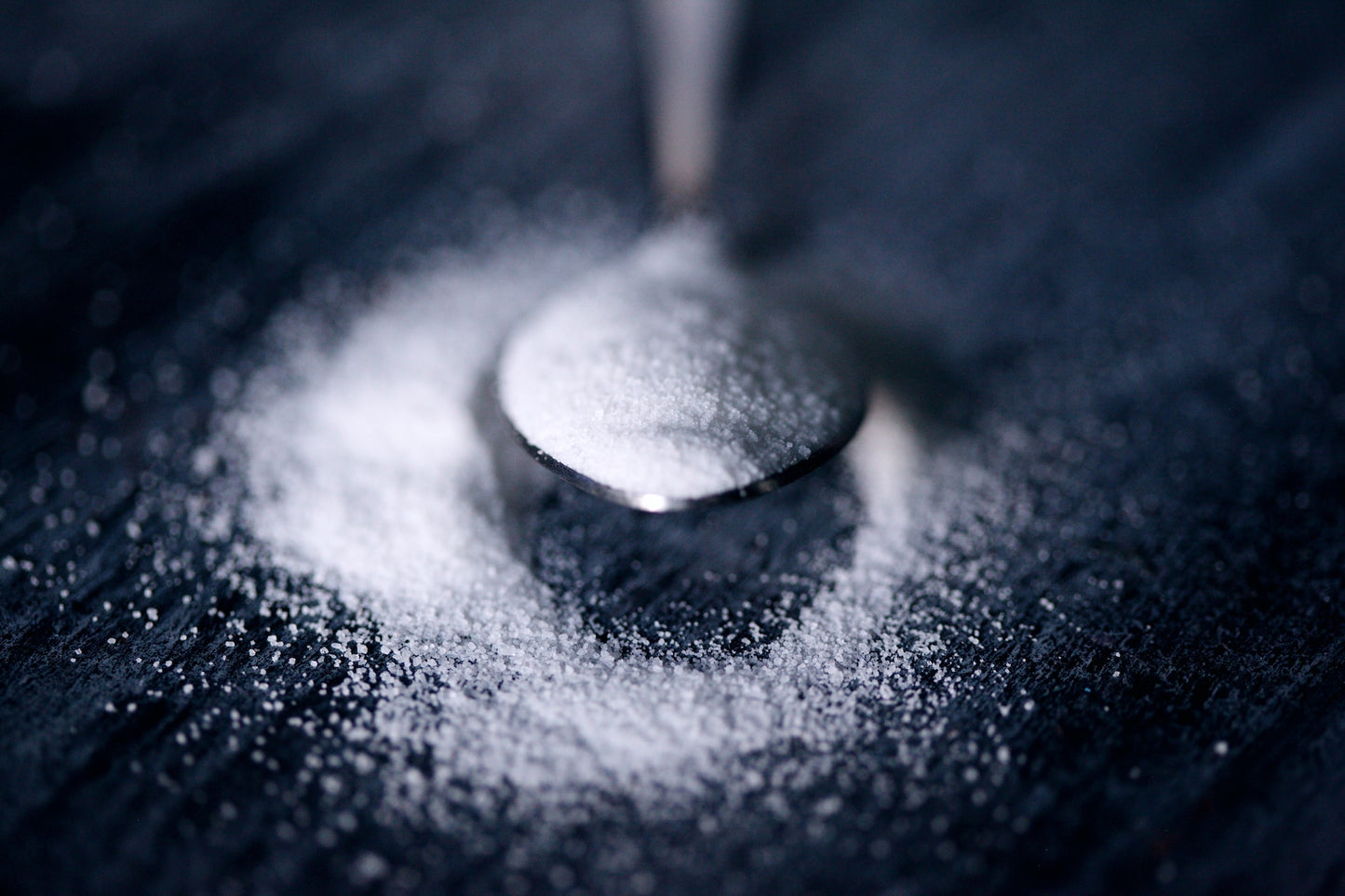
Protein powders are just one out of the thousands of food and drinks that contain artificial sweeteners like aspartame. These sugar substitutes are often added to food products and drinks as means of enhancing the sweetness level without adding extra carbs or calories since many are targeted as health or weight loss products. But is aspartame safe to consume? And are there protein powders without artificial sweeteners?
What is aspartame?
Aspartame is a white odorless powder and a low-calorie sweetener that is about 200 times sweeter than table sugar. It is one of six artificial sweeteners approved in the US as a food additive by the FDA, along with saccharin, acesulfame-K, neotame, advantame, and sucralose. Aspartame is sold under the brand names Nutrasweet®, Equal®, and Sugar Twin®.
Aspartame is primarily composed of two amino acids, phenylalanine and aspartic acid, which when combined together form an intensely sweet substance. Because so little is required to sweeten a product compared to table sugar, it contributes little to no calories and it will not raise blood sugar.
According to the FDA, aspartame was first approved for use in chewing gum and some other products in 1974. It was approved for additional uses and foods in 1996. To determine its safety in the general population, the FDA reviewed more than 100 scientific studies on aspartame including studies used to determine toxicity and effects on various systems of the body. The FDA also established aspartame's ADI (Acceptable Daily Intake), or the "amount of a substance considered safe to consume over the source of a person's lifetime." Every vitamin and mineral has an ADI, fyi.
Why is aspartame considered unsafe and possibly carcinogenic by the WHO?
As of July 2023, the International Agency for Research on Cancer (IARC) as well as the Joint Expert Committee on Food Additives (JECFA) has classified aspartame as "possibly carcinogenic" or cancer-causing to humans based on limited evidence. In other words, after reviewing hundreds of studies, the joint committee of experts noted that there isn't enough studies looking at the cancer-causing potential of aspartame to draw definitive conclusions from and that this needs to be reevaluated with more and better studies.
That being said, the committees reaffirmed the acceptable daily intake of 40 mg per kg of body weight and suggested that there was no safety concerns at these doses for the general population.
Aspartame is only considered unsafe when consumed at incredibly high doses above 40mg per kg of body weight. Per the IARC, an adult weighing 70kg or 154 lbs would need to consume 9-14 cans of an aspartame-containing diet soft drink in order to even reach the ADI of 40mg per kg, assuming there are no aspartame sources from other foods throughout the day.
Why do food products like protein powders use artificial sweeteners like aspartame?
While sugar is the body's main source of energy, many people who are health conscious or trying to lose weight try to avoid or limit their added sugar intake.
In fact a 2023 survey showed that 61% of 1,000 Americans said they were trying to limit or avoid sugar intake.
Because aspartame adds sweetness to foods without adding calories and sugar/carb content, they're a no-brainer for products like protein powders which are often targeted for weight loss, general health or body building.
Are there any protein powders without artificial sweeteners?
Artificial sweeteners like aspartame aren't the only option for enhancing the sweetness level of a product without adding to sugar and calorie content.
Protein powders can use either artificial or natural sweeteners or a combination thereof. Protein powders labeled as "all natural", "organic" or plant-based may be more likely to use natural sugar-substitutes or sweeteners but the only way to truly know is to check the ingredient label.
Do Growing Naturals Rice or Pea Protein Powders contain Aspartame?
No. Growing Naturals rice and pea protein powders do not use aspartame as a sweetener. All GN rice proteins are sweetened with rice syrup solids, a sugar derived from brown rice. All GN pea proteins (except for Original/unflavored) are sweetened with stevia and coconut palm sugar. Original unflavored pea protein contains no added sweeteners.
